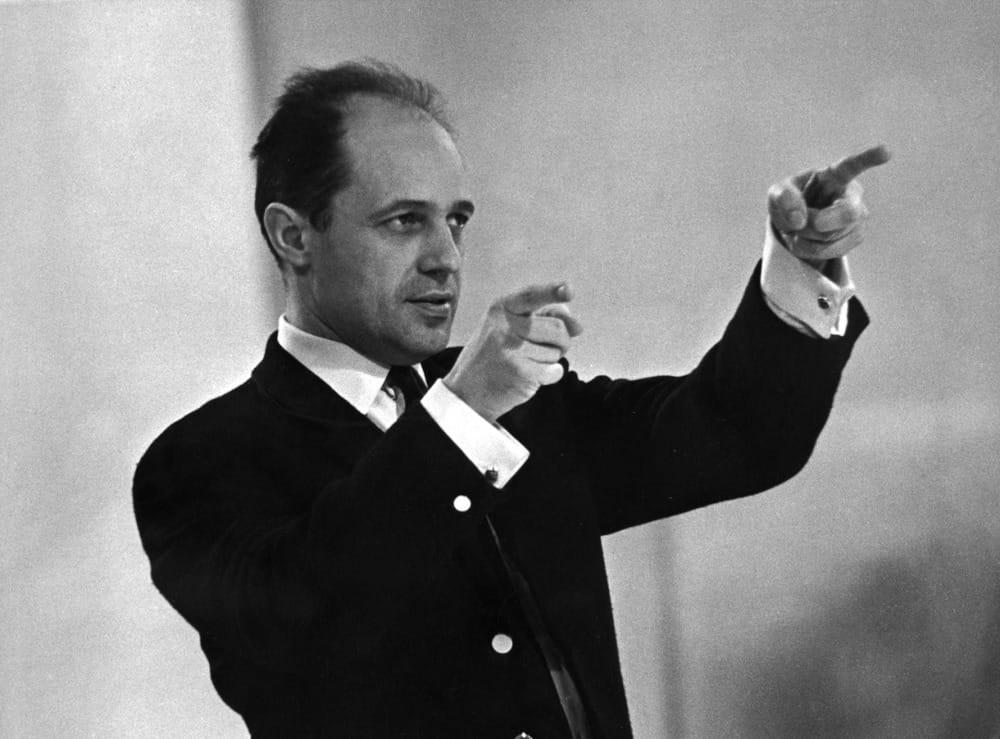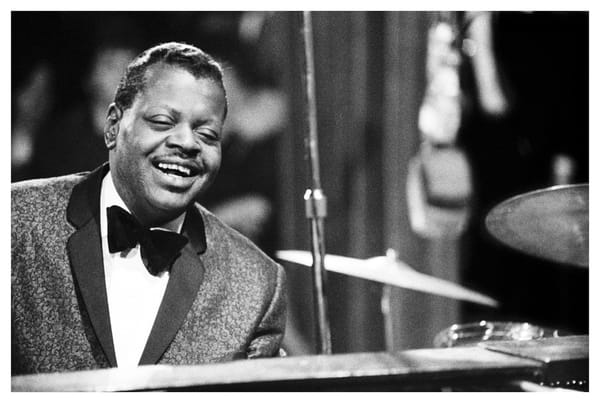Boulez at 90: The Enfant Terrible of Modern Music
Emiel de Lange explores the new musical vocabulary of one of the 20th century’s most controversial composers

Pierre Boulez is the controversial figure at the forefront of musical development in the 20th Century. Though equally respected by his enemies as by his supporters, a certain stubbornness and radicalism has alienated many. For instance, in 1952 he declared in one fell swoop half of the musical world as useless, in 1967 that opera houses should be blown up, and in 1971 he advocated for the destruction of the Mona Lisa. But read past these shocking soundbites and you may find yourself in fact following his arguments. Indeed the vast literature he has produced throughout his career has swayed many, undoubtedly influencing the course of music history, and it certainly does display a penetrating and unabashed intelligence. Of course, his music is the true testament to this: original, endlessly thought provoking, and constantly being reinvented; the Guardian says “it is impossible to imagine […] the entire musical world without Pierre Boulez”. But then why haven’t you heard of him? And, at the recent 90th birthday celebrations at the Barbican, why was the hall half empty?
The masterpieces of Mozart were written at a time when men wore powdered wigs and aristocrats entertained themselves at balls in ornate palaces; the Enlightenment ideals of rationality and form were manifest. When Beethoven wrote his dramatic symphonies, full of angst and triumph, society was turning inward and Napoleon’s conquests inspired the ideas of great men. The 20th Century began with two wars of unprecedented scale. Industrial technology enabled the destruction of a generation, and entire peoples, while in peacetime dehumanized the lower classes and manufactured a commodified culture for the masses.
At least, this is the pessimistic view of social theorists such as Theodor Adorno, who, in 1949, famously declared that “To write poetry after Auschwitz is barbaric”. Whether you agree or not, it is clear that art could not continue as before and ignore the new reality. In the 20th Century an unprecedented diversity of musical thought emerged, ranging from the reactionary and easy-going minimalists to the strictures of serialism. Boulez, at least at the start of his career, was a certified serialist. Serialism was a method, developed by Arnold Schoenberg in the 1920s, which attempted to free music from the “tyranny” of the tonal centre, allowing the other musical parameters, such as rhythm and timbre to take centre-stage.
After the war, Boulez and others would extend this beyond tone to all the parameters of sound, a style known as total serialism. This rigid, highly formulised way of writing music was attacked for its asceticism, for its artifice and sterility, and for its lack of expression. Boulez himself realised these limits, but his later music retains certain aspects, including a focus on architecture and structure rather than expression or sensuality. This certainly sets him apart from past French composers, such as Debussy or Ravel, but then again Boulez was working in a new world. His musical mission seems altogether higher, and in his own words was nothing less than the construction of a new ‘musical language’.
“If you want a kind of supermarket aesthetic, OK, do that, nobody will be against it, but everybody will eventually forget it”
His first great success was ‘Le marteau sans maitre’, or, ‘The hammer without a master’, first performed in 1955. The orchestration was new and cosmopolitan – combining instruments from all over the world into groups and allowing an abstraction of timbre from instrumental identities. Although it is set to surrealist poetry, the music is structured at even the smallest scale according to techniques derived from serialism such as pitch multiplication. In the decades since, Boulez has published fewer than 20 works, but each are, in the words of George Benjamin, “singular statements, singular and unique works”, something unique and I think entirely appropriate for our cultural milieu. Also unique is the manner in which Boulez continually revises his work and perfects them further, as if reaching closer to some ideal expression of the piece’s logic. In these later works he experiments with the use of chance to determine structure (‘Pli selon pli’), spatial organisation of sound (‘Rituel in memoriam Bruno Maderna’) and the use of electronics (such as in ‘Repons’).
It was in 1970 that then-president Georges Pompidou invited Boulez to build an institute for musical research in Paris, and this is where much of the capabilities of electronic music were developed. IRCAM – l’Institut de Recherche et Coordination Acoustique/Musique – was a hotbed of innovation, with computer scientists and acousticians working directly alongside composers. Pioneering work on FM synthesis was carried out and programmes for the real-time modulation of sound were developed (such as MAX). MAX has been instrumental in the creation of some of the most important musical compositions in recent decades, such as Birtwhistle’s opera, The Mask of Orpheus. Boulez himself wrote a number of works in the early days of IRCAM, exploring the potential for computers to manipulate sound in real-time, for example, in ‘Repons’ where a programme is used to provide an altered echo of certain instruments.
Boulez’s music is difficult. It is unlike Mozart or Beethoven or anything heard before, and has not enjoyed broad public appeal (yet). But his contributions are valuable; his language is objective and free of any history, it is one of the most successful responses to the events and conditions of the 20th century. If people complain of its atonality and difficulty, they should think of music from other cultures, which can sound equally alien and provide unequivocal evidence for tonal systems being the result of cultural conditioning. In this way, Boulez’s music can be seen as a universal music, rooted in the equally universal language of mathematics.
“The strongest civilisations are those without memory - those capable of complete forgetfulness. They are strong enough to destroy because they know they can replace what is destroyed. Today our musical civilisation is not strong”
Universally popular it certainly isn’t. Boulez’s own diagnosis is that people use music as a sort of backdrop to their own thoughts while his music demands complete attention. Although unwilling to compromise on his duties as composer, as a conductor he has enjoyed international fame, winning 26 Grammy awards and raising the profile of 20th Century music to the highest acclaim it has enjoyed. In the 70s he was musical director of both the BBC Symphony Orchestra (in London) and the New York Philharmonic, reinvigorating the musical life of these two cities. In New York, he organised ‘rug concerts’ where audiences were exposed to contemporary music in new ways. Now at 90 years old, he no longer conducts, and indeed achievements in the concert hall were only transient, but I have no doubt that his compositions will be remembered and become more widely understood in the future.
Personally, I have found exploring the music of Pierre Boulez to be one of my most rewarding musical explorations. In my efforts to understand this language I have been taken back in time to medieval Europe and around the world. While I am still a huge fan of what historians call ‘common practice period’ music, such as Beethoven and Mozart, and also of more popular styles from the last decades, I see now how the immediate appeal of these styles is the result of lifetime exposure. Attending the Boulez at 90 events at the Barbican recently was an important catalyst in my appreciation. With a full day of concerts, talks, and documentaries I was thrown in at the deep end, but quickly learnt to swim. Thankfully, the celebrations are not yet over – in the coming months we have two more concerts to look forward to by two of the world’s best orchestras. I hope you will join me in exploring the art of one of the most radical and forceful minds in modern music.
The Pierre Boulez: 90th Birthday Festival continues on 23rd April at the Barbican where the London Symphony Orchestra, conducted by leading Boulez interpreter Peter Eötvös, shall perform two of his works, as well as Stravinsky’s Rite of Spring. Tickets from £10
Then on 28th April, Boulez’s Ensemble Intercontemporain pays tribute to its founder with music from Debussy, Robin, Pintscher and Boulez himself. Tickets from £10







